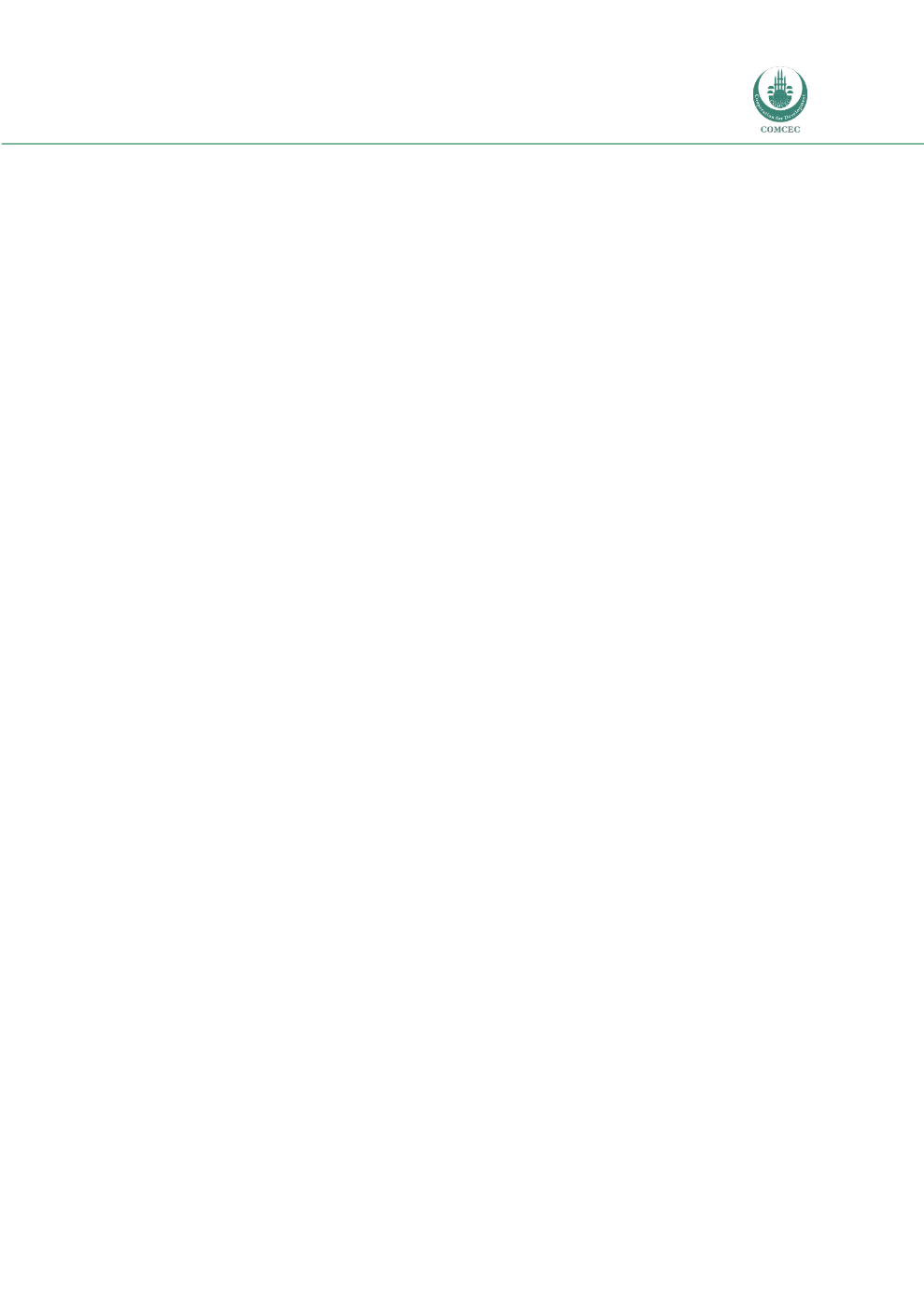

Retail Payment Systems
In the OIC Member Countries
53
Indonesia Eximbank. The indirect participant status is offered to participants who handle
small volumes; they are required to hold a demand deposit account at the Bank Indonesia.
Retail Payment Systems
Cash remains the dominant means of payment in Indonesia despite the various innovative
products and instruments introduced by banks in the provision of payment services and non-
cash payments are mostly provided by the banking system. Other means of payment used in
Indonesia include cheques, drafts, and direct debit and credit transfers (Bank Indonesia,
2002). Most medium to large commercial banks provide ATM access to saving accounts.
Electronic direct credit and direct debit transfers are solely available for intra bank
transactions. Payments using cards (debit and credit, ATM, and POS) are gaining popularity,
issued by banks and these are switched through different networks that are not interlinked.
The biggest of these networks in terms of number of banks it services, Artajasa, has access to
the Bank Indonesia RTGS in order to facilitate settlement of card and other retail transactions
by member banks.
Non-cash payment methods
1.
Credit transfer. Banks provide a variety of credit remittance services within their branch
networks, including standing orders and electronic remittances. Interbank transfers over
Rupiah [IDR] 1 billion and other urgent interbank fund transfers are now settled through
Bank Indonesia – Real-Time Gross Settlement System (BI-RTGS). Fund transfers for bank
customers may be made via intra bank electronic transfer, a paper based clearing system
for local transactions over correspondent bank networks for cross-regional transfer, and
the RTGS system both for local and cross-regional transfers.
2.
Cheques. It is a common banking practice in Indonesia for banks to offer cheque account
facilities. BI has a strict rule regarding dishonoured cheques. If three small amount
cheques are dishonoured within a six months period, or one cheque for a large amount, the
customer is ‘blacklisted’ and prohibited from holding a cheque account at any bank for one
year (Bank Indonesia, 2002).
3.
Direct debits. Direct debits are still limited to intra bank usage. With no interbank giro
system, utility companies are forced to make banking arrangements with commercial
banks for the purpose of bill payment collection.
4.
Payment cards. A wide range of payment cards has emerged in Indonesia including
international credit and debit cards, ATM and point-of-sale (PoS) debit cards, numerous
private label cards (e.g. supermarket cards) and some integrated circuit cards (smart card

















